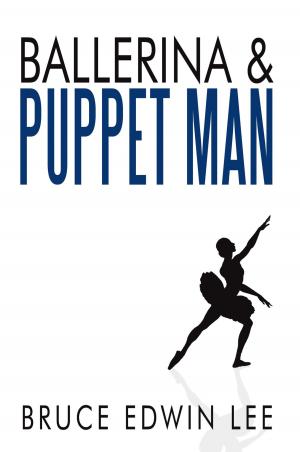
This heartwarming inspirational memoir is the story of a young girl, Francine Gilliamo. She was born and raised in Queens, New York to Italian immigrant parents. Her quest in life was to abide by her strict moral and religious upbringing her father demands from her. She is totally consumed with trying to do the proper things and yet inadvertently slips away from time to time into a more liberal and enchanting life. The fear of God is overwhelming to her, as she struggles very hard not to commit a sin. Her cravings are tremendous for there is a strong appetite to become recognized as an individual and also needing the respect from others. Being of Italian descent was shameful for her as a child. This inadequacy caused her to be very shy and limited especially in the presence of her peers. Her first encounter with this bigotry was felt on her first day of fifth grade in 1954. Francine assisted her father in the making of the wine. This was the evening prior to her first day of school. Her hands were stained with purple tint. This was noticed by her schoolmates. When they asked her why her hands were of this color, she told them she made wine with her father. She was tormented and teased. They actually asked her if she used her dirty Italian feet in the process. This was only the beginning of a long painful and yet miraculous journey into life for Francine. This child was able to turn harsh situations into an asset for her. There was a constant ache inside of her soul, but it very rarely showed. Francine was torn between her strict moral father and her own free will. At times she felt she had a two sided brain. The predicaments she encounters are astounding and how she conducts herself is genuinely moving. She has expressed great honesty in this writing and most of all much sincerity. At times the reader will shed a tear and feel upset for this girl, but ironically this child's life blossoms into a reality of nothing but love, devotion and especially pride. The death of her parents is a tragedy for Francine, but this tragedy becomes a sincere inspirational prophecy for life itself. What she was taught and how she accepted this learning eventually is applied to her adult life in the rearing of her two sons. It is done with eloquence and pride. Eventually, the Italian develops into a sense of dignity. Francine feels forgiveness for her childhood and learned that this rearing gave her encouragement and enlightenment to raise her family with grace. Daydreaming was a common occurrence and she especially loved the memories of the Diner in Queens. Sins were forgiven there. You could confess your sins and never receive penance. The church dances were considered a ticket to heaven and the people of the church were your vehicles. Seeing her mother grow sick and old alters Francine somewhat, for she at times becomes cold and distant to her husband Michael. She fears growing old and knows she will one day be aged. Francine defies her menopause with false and ruthless analogies. Not me, I'm not in menopause! As a child there was very little time for psychological comfort. Negativity and problems were never discussed in the presence of the children. Children should be children, no need to subject them to adult problems. This in itself speaks for itself. Behave and show respect! This was the bible in her home. The Wine Cellar is a compassionate story of a young girl who strives for peace, love, respect, not only for herself but for others as well.
This heartwarming inspirational memoir is the story of a young girl, Francine Gilliamo. She was born and raised in Queens, New York to Italian immigrant parents. Her quest in life was to abide by her strict moral and religious upbringing her father demands from her. She is totally consumed with trying to do the proper things and yet inadvertently slips away from time to time into a more liberal and enchanting life. The fear of God is overwhelming to her, as she struggles very hard not to commit a sin. Her cravings are tremendous for there is a strong appetite to become recognized as an individual and also needing the respect from others. Being of Italian descent was shameful for her as a child. This inadequacy caused her to be very shy and limited especially in the presence of her peers. Her first encounter with this bigotry was felt on her first day of fifth grade in 1954. Francine assisted her father in the making of the wine. This was the evening prior to her first day of school. Her hands were stained with purple tint. This was noticed by her schoolmates. When they asked her why her hands were of this color, she told them she made wine with her father. She was tormented and teased. They actually asked her if she used her dirty Italian feet in the process. This was only the beginning of a long painful and yet miraculous journey into life for Francine. This child was able to turn harsh situations into an asset for her. There was a constant ache inside of her soul, but it very rarely showed. Francine was torn between her strict moral father and her own free will. At times she felt she had a two sided brain. The predicaments she encounters are astounding and how she conducts herself is genuinely moving. She has expressed great honesty in this writing and most of all much sincerity. At times the reader will shed a tear and feel upset for this girl, but ironically this child's life blossoms into a reality of nothing but love, devotion and especially pride. The death of her parents is a tragedy for Francine, but this tragedy becomes a sincere inspirational prophecy for life itself. What she was taught and how she accepted this learning eventually is applied to her adult life in the rearing of her two sons. It is done with eloquence and pride. Eventually, the Italian develops into a sense of dignity. Francine feels forgiveness for her childhood and learned that this rearing gave her encouragement and enlightenment to raise her family with grace. Daydreaming was a common occurrence and she especially loved the memories of the Diner in Queens. Sins were forgiven there. You could confess your sins and never receive penance. The church dances were considered a ticket to heaven and the people of the church were your vehicles. Seeing her mother grow sick and old alters Francine somewhat, for she at times becomes cold and distant to her husband Michael. She fears growing old and knows she will one day be aged. Francine defies her menopause with false and ruthless analogies. Not me, I'm not in menopause! As a child there was very little time for psychological comfort. Negativity and problems were never discussed in the presence of the children. Children should be children, no need to subject them to adult problems. This in itself speaks for itself. Behave and show respect! This was the bible in her home. The Wine Cellar is a compassionate story of a young girl who strives for peace, love, respect, not only for herself but for others as well.















